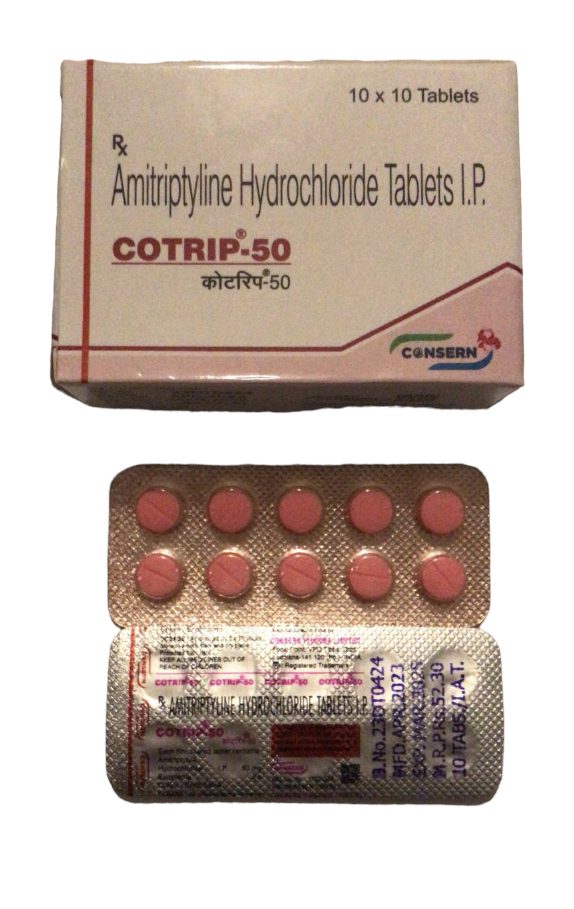Amitriptyline Hydrochloride tablets 50mg
Amitrip (Amitriptyline Hydrochloride) is a TCA (an abbreviation for tricyclic antidepressant). Medicines belonging to this class of drugs are sometimes referred to as first-generation antidepressants and may cause more side effects than SSRIs (serotonin reuptake inhibitors) and other second-generation antidepressant medicines. This drug’s mechanism of action involves acting on the brain’s nerve cells and increasing the amounts of serotonin and noradrenaline. As these chemicals can affect the mood, restoring their balance may help to relieve depression. In addition to being used for depression, obsessive-compulsive disorder (OCD), and eating disorders, this medicine has also been used for a variety of other conditions.
Dosage and Administration:
Amitrip (Amitriptyline Hydrochloride) is supplied in 50mg strength tablets, which are administered orally. The correct dosage can vary greatly from patient to patient, based on factors such as the condition needing treatment and the patient’s health. In all cases, the correct dosage will be determined by a doctor who will take into account the patient’s individual circumstances. In some cases, adults treating depression have been told to start out with a dosage ranging from 25mg to 100mg (taken as 3 to 4 doses) or else a dosage of 50mg to 100mg is taken before bed. Adjustments may be made by the doctor providing treatment when the maintenance dose is being determined.
The dosage for pain may vary, and some adult patients have been instructed by their doctor to take 75mg per day, either as a single dose or else as divided doses. If the doctor deems it necessary, the dosage may be adjusted. Patients may need to have their heart rate monitored, as well as regular blood pressure and ECG checks. In all cases, you must strictly adhere to the instructions given and only take the amount of medicine that your doctor tells you to take.
Side effects:
Tricyclic antidepressants such as Amitrip (Amitriptyline Hydrochloride) can cause side effects, and a list of some examples is given here:
•Dry mouth
•Sleepiness
•A reduction in libido
•Appetite or body weight changes
•Swelling of the breasts affecting male or female patients












Latest reviews
There are no reviews yet.